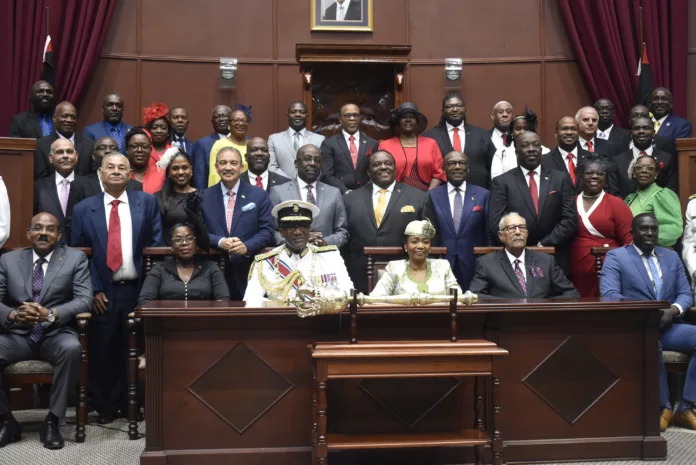By Robert Andre Emmanuel
The Prime Minister’s Chief of Staff Lionel Hurst confirmed reports that the government has approved salary increases for parliamentarians, despite opposition members being unaware of the move.
Observer media understands that the increase will be retroactive to January 2023 and will be paid out this week.
However, it is unclear if the government has passed any legislation or resolution to formally approve the decision, or has any statutory instrument been tabled in Parliament, according to the government’s website for legislation.
Unlike most public servants who rely on trade unions to negotiate salaries with the government, parliamentarians, via Parliament, have the authority to increase their own salaries.
Opposition Members of Parliament have told our newsroom that they were caught off-guard by the development, and UPP MP for St John’s Rural West, Richard Lewis is of the view that there should have been consultation on the move, instead of an arbitrary decision being taken by Cabinet officials to increase salaries.
Meanwhile, MP for St George Algernon Watts told our newsroom that “I feel comfortable in saying that I speak for a number of my colleagues; not only have we not received it, but we aren’t interested in receiving it at a time like this, when civil servants, pensioners, etc are still clamouring for theirs.
“I don’t think that we should be priority number one in this country, and we have had no conversation, no discussions with the government or anybody about a salary increase.”
If implemented, it would be the first time since 1994 that parliamentarians in Antigua and Barbuda would have received a salary increase.
According to Hurst, the 14 percent would be reflective of the increase given to public sector workers between 2021 and 2024.
According to the Ministers and Parliamentarians Salaries Act of 1994, the base annual salary for the Prime Minister is EC $150,000, with the Attorney General and government ministers receiving $120,000.
The Leader of the Opposition and non-portfolio ministers receive $72,000 annually with parliamentary secretaries and Speaker of the House getting $60,000.
Other salaries include President of the Senate – $42,000; Vice President of the Senate – $36,000; Senators – $24,000; Minority Senate Leader – $26,400; Deputy Speaker of the House of Representatives – $54,000 and Members of the House of Representatives – $54,000.
In addition to their base salary, parliamentarians receive pensions if they have served two terms of unbroken service or an aggregate of 10 years, except Prime Ministers who receive their pension after their first full term (5 years) in office.
Meanwhile, the Commonwealth Parliamentary Association: Pay and Renumeration report in 2021 noted that parliamentarians also receive travel, entertainment, equipment and constituency allowances and the ability to receive loan/duty free concession on vehicles.
In addition, parliamentarians also receive free utilities such as water and electricity.
The debate over how much parliamentarians on the island should be paid has been ongoing since at least 2020 when in 2022, the Prime Minister defended the push by his Cabinet ministers for a pay raise.
Frequently, government ministers have used the example of Singapore—whose parliamentarians receive one of the highest paying salaries in the world—as a reason for their increase.
In the Caribbean, politicians in Jamaica and St Kitts most recently approved to increase their own salaries.

